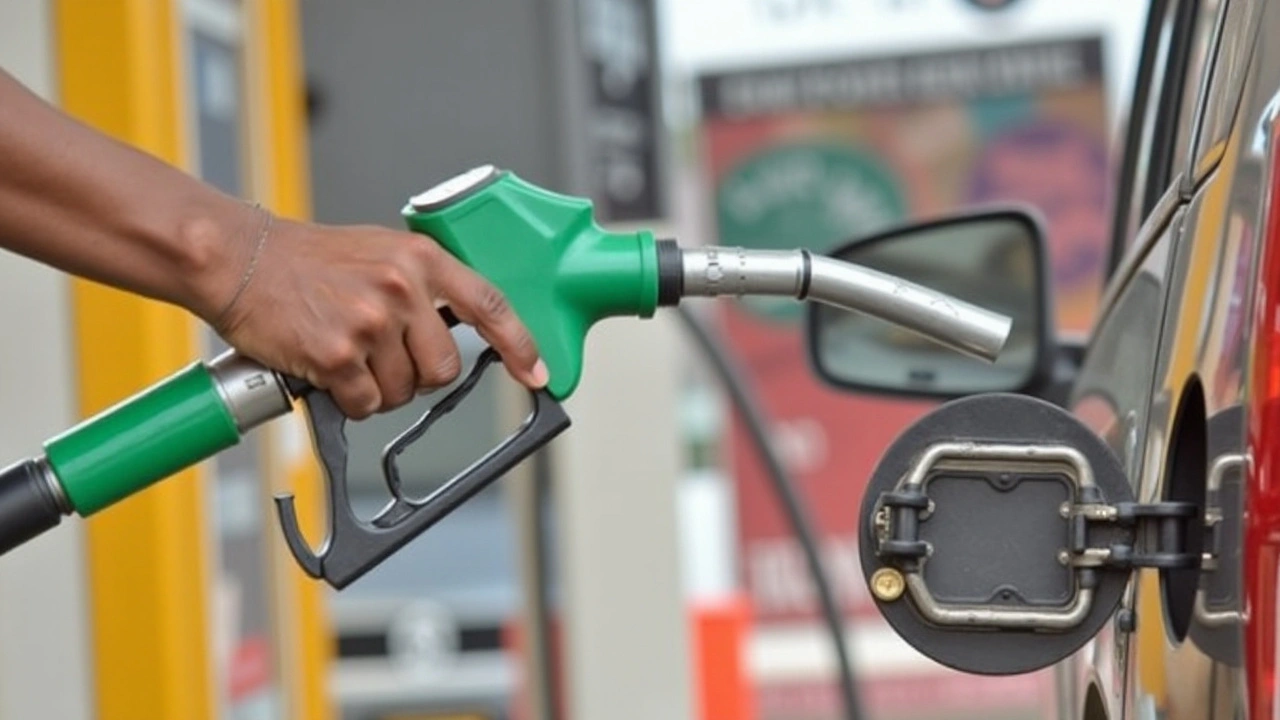NNPCL Petrol Price Surge to N1,030 in Abuja: Impact on FCT Economy and Daily Commute
 Oct, 10 2024
Oct, 10 2024
Understanding the Petrol Price Hike by NNPCL
The Nigerian National Petroleum Company Limited (NNPCL), a significant player in the country's energy sector, has recently raised the price of petrol at its stations across the Federal Capital Territory (FCT), Abuja. This increase to N1,030 per litre from N897 marks the second hike in petrol prices within a month. Such a hike is substantial, reflecting a 14.8% increase, equivalent to N133 per litre. This surge in price is adding to the strain already felt by many struggling with the rising cost of living. The unexpected nature of this announcement has taken citizens by surprise, amplifying frustrations, especially as communication about the price change was only conveyed verbally by fuel attendants at the pumps, leaving many unaware of the increase until they had endured long lines.
Impact on Daily Lives and Transportation
This sudden price rise in petrol by NNPCL is not just a number; it affects the day-to-day life of residents in the FCT considerably. Fuel is a fundamental necessity, influencing everything from transportation to the cost of goods. For many, personal transportation is integral to daily routines, and higher fuel prices may impose more stress on household budgets. Beyond personal vehicles, public transportation costs are also anticipated to rise. This would mean increased fares for commuters relying on public cars and buses to get around the city. Consequently, the burden often falls on those least able to afford it, tightening the belt further on those already financially strained. It's a domino effect that reflects throughout the local economy, from traders who transport goods to consumers relying on those goods.
Reactions from the Public and Independent Marketers
Public reaction to the sudden and substantial increase in petrol prices has been marked by frustration and confusion. Long, seemingly endless queues at NNPCL stations have become a familiar sight in Abuja, with drivers waiting patiently, only to find out from attendants about the revised prices. This lack of communication is a significant component of the frustration felt by consumers who feel blindsided by sudden policy changes. Parallelly, the independent marketers such as Conoil and Total Energies have also adjusted their prices, selling petrol for N926 per litre. These companies, functioning within the inflation context like NNPCL, find themselves crowded with customers trying to find the most affordable fuel option available, resulting in queues that can span several hours.
Broader Economic Implications
The economic implications of the increase in petrol prices extend beyond immediate fuel costs. Increases of this magnitude tend to have a ripple effect on prices across the board, including basic commodities and services. For businesses, particularly those dependent on transportation, such as logistics companies and food delivery services, increased fuel costs may translate into higher operational costs. Often, these businesses pass on extra costs to consumers to maintain profitability. This chain reaction can lead to generalized inflation in the market, adversely impacting purchasing power. Residents of the FCT are likely to experience this trickle-down effect on their wallets and daily expenses, necessitating adjustments to manage budget constraints.

Government Response and Potential Mitigation
The government’s role in addressing price surges in fuel prices is critical. Many are watching to see how authorities will react to mitigate the negative repercussions of such an increase. Questions surrounding subsidies, price control measures, or other economic relief efforts abound, yet concrete actions seem sparse. The expectation among consumers is for governmental bodies to engage actively with energy providers to create a stable pricing environment for essential commodities, such as gasoline, vital for daily living. The lack of a structured response may further exacerbate public displeasure, prompting demands for policy shifts that better protect economically vulnerable citizens against abrupt economic shocks.
Looking Ahead: The Path to Solutions
Addressing the petrol price hike and its significant impact requires a concerted effort from both policy makers and energy sector stakeholders. Developing a sustainable energy policy that involves a mixed energy solution could alleviate some of the pressures facing the FCT residence. Exploring and investing in alternative energy sources might help cushion the effects of global oil price volatility. Moreover, improving transparency and communication protocols could help rebuild trust among consumers who often feel blindsided by such changes. Ensuring that the citizenry is well-informed and prepared for economic shifts might reduce the immediate shock and frustration accompanying sudden petrol price increases.
Ultimately, achieving a robust and equitable energy pricing strategy would benefit all stakeholders, fostering an environment where the abruptness of fuel price changes becomes more manageable.